
RUSSIAN JOURNAL OF PLANT PHYSIOLOGY
Scope & Guideline
Fostering Innovation in Plant Biochemistry
Introduction
Aims and Scopes
- Plant Physiological Responses to Stress:
This area encompasses research on how plants respond to various abiotic stresses such as drought, salinity, and temperature extremes, including physiological adaptations and the biochemical mechanisms involved. - Plant Hormonal Regulation:
The journal highlights studies on the role of plant hormones (e.g., auxins, gibberellins, salicylic acid) in regulating growth processes, stress responses, and developmental stages. - Metabolomics and Physiological Profiling:
Research focusing on the metabolic pathways in plants, including the analysis of secondary metabolites, antioxidant systems, and their implications for stress tolerance and plant health. - Genetic and Molecular Studies:
The journal publishes studies on gene expression, transcription factors, and molecular mechanisms that regulate physiological processes and responses to environmental changes. - Ecophysiology:
Research in this domain investigates how physiological traits of plants affect their interactions with the environment and their adaptation strategies in various ecosystems. - Biotechnology and Plant Improvement:
This area covers biotechnological approaches for plant improvement, including genetic engineering, tissue culture, and the use of nanotechnology to enhance plant resilience and productivity.
Trending and Emerging
- Integration of Omics Technologies:
There is an increasing trend towards using genomics, transcriptomics, proteomics, and metabolomics to provide comprehensive insights into plant physiological responses and adaptations. - Sustainable Agriculture and Plant Resilience:
Research focusing on sustainable agricultural practices, including the role of beneficial microbes, biostimulants, and eco-friendly interventions to enhance plant resilience against environmental stresses is gaining traction. - Nanotechnology in Plant Physiology:
The application of nanomaterials for improving plant growth, stress tolerance, and biochemical properties is emerging as a significant area of interest, reflecting broader trends in agricultural innovation. - Climate Change Effects on Plant Physiology:
Studies exploring the impact of climate change on plant physiological processes, including adaptations to shifting environmental conditions, are increasingly prevalent. - Plant-Microbe Interactions:
Research on the interactions between plants and microorganisms, including endophytes and mycorrhizae, is expanding, emphasizing their roles in enhancing plant health and stress tolerance. - Bioinformatics and Computational Biology:
The use of computational tools to analyze plant physiological data and model plant responses to various environmental conditions is an emerging trend, reflecting advancements in data science and technology.
Declining or Waning
- Traditional Agronomy Practices:
Research focusing exclusively on conventional agronomy methods has decreased, likely due to a growing emphasis on sustainable practices and innovative agricultural technologies. - Basic Physiological Studies:
There is a noticeable decline in purely descriptive physiological studies without a clear application or connection to environmental or agricultural challenges, as the field shifts towards more applied research. - Single-Variable Stress Studies:
Studies that examine the effects of a single stressor on plant physiology, without considering multi-stress interactions or ecological contexts, are becoming less common as researchers recognize the complexity of plant responses. - Non-Genomic Plant Responses:
Research that primarily focuses on non-genomic responses (such as immediate physiological changes) without integrating genetic or molecular insights is seeing a decline, as there is a push towards understanding the underlying genetic mechanisms.
Similar Journals

Plant Stress
Decoding Plant Stress Responses for a Greener TomorrowPlant Stress is a prestigious academic journal published by Elsevier that focuses on the critical study of stress responses in plants, bridging vital areas such as ecology, evolution, and plant science. With its ISSN 2667-064X, this journal serves as an essential platform for researchers and professionals seeking to explore innovative findings and advancements in plant stress biology. Its notable rankings in the Q1 category for both Ecology, Evolution, Behavior, and Systematics and Plant Science as of 2023 further establish its significance, being recognized in the top quartile of its field. The journal’s impressive Scopus ranks, including Rank #144/721 and Rank #107/516 in the respective categories, highlight its influence and the quality of research it disseminates. While currently not offering Open Access, Plant Stress is instrumental in fostering academic dialogue and collaboration among researchers worldwide, with implications that extend beyond theoretical studies into practical applications in agriculture and environmental management. For those dedicated to understanding plant resilience and stress adaptation, Plant Stress is an indispensable resource.

JOURNAL OF PLANT GROWTH REGULATION
Connecting Researchers to the Future of Plant ScienceJOURNAL OF PLANT GROWTH REGULATION, published by SPRINGER, is a prestigious academic journal that has been at the forefront of advancing research in Agronomy and Plant Science since its inception in 1982. With an impressive impact factor and a 2023 Scopus ranking placing it in the Q1 category for both agronomy and crop science as well as plant science, this journal attracts a global audience of researchers, professionals, and students dedicated to understanding the complexities of plant growth and regulation. The journal covers a diverse range of topics relevant to plant physiology, biochemistry, and the environmental factors affecting plant development, thus providing a critical platform for sharing significant discoveries and insights within the agricultural and biological sciences. Researchers can access the journal through traditional subscriptions, ensuring a broad dissemination of high-quality research output. As it continues to shape the field into 2024 and beyond, JOURNAL OF PLANT GROWTH REGULATION remains an essential resource for anyone involved in plant science research and innovation.
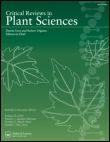
CRITICAL REVIEWS IN PLANT SCIENCES
Advancing the frontiers of plant knowledge.CRITICAL REVIEWS IN PLANT SCIENCES, published by Taylor & Francis Inc, is a prestigious journal that has been advancing the field of plant science since its inception in 1983. With an impressive impact factor and consistently ranked in the top quartile (Q1) of its category, this journal is a leading platform for the dissemination of peer-reviewed research that spans the breadth of plant biology, ecology, and agricultural applications. Housed in the United Kingdom, it serves an international readership, making significant contributions to our understanding of plant systems and their environmental interactions. This journal is highly regarded within the Scopus rankings, holding an impressive position of 18 out of 516 journals in the Agriculture and Biological Sciences category, placing it in the 96th percentile. Although not currently open access, the journal provides valuable insights and critical reviews that are essential for researchers, professionals, and students striving to further their knowledge and bolster their own research in plant sciences.

Current Plant Biology
Connecting Researchers in Plant SciencesCurrent Plant Biology is a distinguished peer-reviewed journal published by ELSEVIER, focusing on the dynamic and rapidly evolving field of plant sciences. Since its inception as an Open Access publication in 2014, it has established itself as a leading platform for innovative research, boasting a remarkable Impact Factor that underscores its relevance and contribution to the scientific community. Based in the Netherlands, this journal caters to a diverse audience of researchers, professionals, and students, facilitating the dissemination of key findings in an array of disciplines including biochemistry, genetics, cell biology, and developmental biology. Recognized for its rigorous standards, Current Plant Biology holds a prestigious standing, classified within the Q1 and Q2 quartiles of various Scopus categories, reflecting its impact and reputation in the realms of Plant Science and related fields. The journal is committed to providing accessible and high-quality research outputs that inspire further investigation and collaboration in plant biology.

JOURNAL OF PLANT BIOCHEMISTRY AND BIOTECHNOLOGY
Transforming Insights into Agricultural InnovationsJOURNAL OF PLANT BIOCHEMISTRY AND BIOTECHNOLOGY, published by SPRINGER INDIA, is a leading publication dedicated to advancing research in the fields of plant biochemistry, biotechnology, agronomy, and crop science. With an ISSN of 0971-7811 and E-ISSN 0974-1275, the journal encompasses a wide range of studies aimed at enhancing our understanding of plant biological processes and their applications in agriculture and biotechnology. It has achieved a noteworthy Q2 ranking in Agronomy and Crop Science and Plant Science, as well as a Q3 ranking in Biotechnology, reflecting its quality and relevance in contemporary research. Notably, the journal ranks #166 in Plant Science and #133 in Agronomy, both falling in the top 67th percentile. With a rich history spanning from 1992 to 2024, the journal is committed to providing open access to innovative research findings that bridge the gap between laboratory discoveries and their practical applications in sustainable agriculture. Researchers, professionals, and students will find a wealth of knowledge and inspiration to advance their work in the dynamic field of plant sciences at this esteemed journal.
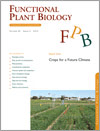
FUNCTIONAL PLANT BIOLOGY
Advancing Plant Science for a Sustainable FutureFUNCTIONAL PLANT BIOLOGY is a prestigious academic journal published by CSIRO PUBLISHING, specializing in the dynamic fields of Agronomy and Crop Science as well as Plant Science. With an ISSN of 1445-4408 and an E-ISSN of 1445-4416, this journal provides a platform for innovative research that addresses key challenges in plant functional biology, ranging from genetics and physiology to ecological interactions. As evidenced by its impact factor and competitive rankings, including Q1 in Agronomy and Crop Science and Q2 in Plant Science, FUNCTIONAL PLANT BIOLOGY holds a significant place in the scientific community, ranking in the top tiers of Scopus for both categories. The journal supports open access options, ensuring that critical research is widely disseminated and accessible to researchers, professionals, and students around the globe. With a publication history spanning from 2002 to 2024, the journal continues to foster the advancement of plant science, making significant contributions to sustainable agricultural practices and ecological research in Australia and beyond.
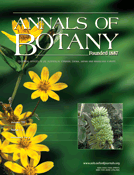
ANNALS OF BOTANY
Cultivating Innovations in Plant ResearchANNALS OF BOTANY, published by Oxford University Press, stands as a leading journal in the field of Plant Science, with a distinguished history that dates back to 1887. This esteemed journal, recognized for its contribution to the advancement of botanical research, holds a prestigious Q1 quartile ranking in its category as of 2023. With a commitment to sharing high-quality, peer-reviewed research, ANNALS OF BOTANY provides a vital platform for researchers, professionals, and students to disseminate novel findings and engage in scholarly discourse. Although it does not currently offer open access options, the journal remains accessible to a wide academic audience, further cementing its role in facilitating the exchange of knowledge within the global botanical community. For those interested in the dynamic and evolving world of plant sciences, ANNALS OF BOTANY is an indispensable resource.
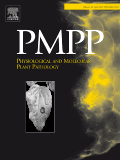
PHYSIOLOGICAL AND MOLECULAR PLANT PATHOLOGY
Advancing the frontiers of plant disease research.Physiological and Molecular Plant Pathology is a leading journal published by Academic Press Ltd - Elsevier Science Ltd, dedicated to advancing our understanding of plant diseases through the synthesis of physiological and molecular perspectives. With an ISSN of 0885-5765, this esteemed journal has been a cornerstone in the field since its inception in 1986 and continues to publish critical research findings up to 2024. Notably, it holds a strong reputation in Plant Science, ranked Q2, and genetics, ranked Q3, reflecting its impactful contributions to these important areas of study. The journal is recognized within Scopus, achieving a ranking of 151 out of 516 in Plant Science, positioning it within the 70th percentile, making it a vital resource for researchers and students alike. While it is not an open-access journal, the insights provided in each issue are invaluable for those dedicated to understanding the complexities of plant pathology and enhancing agricultural resilience. Researchers, professionals, and students in the field are encouraged to explore and contribute to this pivotal journal, which plays a crucial role in driving innovation and discovery in plant health sciences.
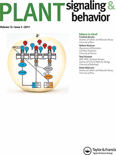
Plant Signaling & Behavior
Decoding Nature's Signals: Where Plants SpeakPlant Signaling & Behavior is a prestigious journal published by TAYLOR & FRANCIS INC, dedicated to advancing the understanding of the complex signaling mechanisms and behavioral responses of plants. With an ISSN of 1559-2316 and an E-ISSN of 1559-2324, it has firmly established itself in the field of Plant Science, earning a Q1 ranking in the 2023 category quartiles and ranking #83 out of 516 in Agricultural and Biological Sciences, placing it in the 84th percentile according to Scopus metrics. The journal serves as a vital platform for researchers and professionals looking to publish innovative studies and reviews that explore the intricate relationships between plant behavior and environmental signaling. With coverage spanning from 2006 to 2024, Plant Signaling & Behavior not only enhances academic discourse but also supports the growing interdisciplinary nature of plant sciences. Although the journal is not open access, it remains a significant resource for students, researchers, and practitioners aiming to deepen their understanding of plant signaling and its implications for ecology and agricultural practices.

Horticulturae
Empowering Global Access to Horticultural Insights.Horticulturae, an esteemed open-access journal published by MDPI, is at the forefront of horticultural science, showcasing innovative research and advancements in the field since its inception in 2015. With its base in Switzerland, this journal operates under the ethos of global accessibility, allowing researchers, professionals, and students to share and disseminate critical findings without barriers. Horticulturae holds a distinguished Q1 ranking in Horticulture and Q2 in Plant Science, as reported in the 2023 categorizations, highlighting its impactful contributions to the scientific community. The journal features rigorous peer-reviewed articles covering a wide range of topics, including plant physiology, crop production, and sustainable practices, making it a vital resource for anyone engaged in gardening, agronomy, and environmental science. As it converges its focus from 2015 to 2024, Horticulturae not only aims to further academic discourse but also aligns with the growing need for research pertaining to biodiversity and sustainable agriculture, thus ensuring relevance in an ever-evolving field.